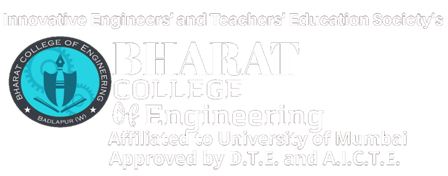Our Vision
We strive for producing Mechanical Engineering professionals having sound technical knowledge with innovative approach, who are competent to pursue diverse and successful careers in modern society
Our Mission
- Objective is to integrate the Mechanical Engineering expertise with industrial requirements.
- To inculcate team spirit, Leadership qualities communication and an aptitude for lifelong learning.
- To bring in professionalism in future entrepreneurs
- To educate graduates who will be ethical, productive, and contributing members of society.
- To provide a solid foundation and understanding of the fundamental principles of mechanical engineering.
Program Educational Objectives
- To prepare the students for successful careers in industry that meet the needs of Indian and multinational companies
- To develop the ability among students to synthesize data and technical concepts for application to product design
- To provide opportunity for students to work as part of teams on multi disciplinary projects.
- To develop various soft skills among students in order to prepare them for pursuing diverse careers in industry
- To provide students with a sound foundation in mathematical, scientific and engineering fundamentals necessary to formulate, solve and analyze engineering problems and to prepare them for graduate studies.
Program Specific Outcomes (PSOs)
- Successfully apply the principles of design, analysis and implementation of mechanical systems/ processes which have been learned as a part of curriculum.
- Analyze, design and evaluate engineering systems including I.C Engines, Refrigeration, Air-conditioning, Conventional and Non-Conventional Power Generating Systems.
- Extend and implement new thoughts on product design and development with the aids of modern CAD/CAM tools, while ensuring best manufacturing practices.
Program Outcomes
Engineering Graduates will be able to:
- Engineering knowledge: Apply the knowledge of mathematics, science, engineering fundamentals, and an engineering specialization to the solution of complex engineering problems.
- Problem analysis: Identify, formulate, review research literature, and analyze complex engineering problems reaching substantiated conclusions using first principles of mathematics, natural sciences, and engineering sciences.
- Design/development of solutions: Design solutions for complex engineering problems and design system components or processes that meet the specified needs with appropriate consideration for the public health and safety, and the cultural, societal, and environmental considerations.
- Conduct investigations of complex problems: Use research-based knowledge and research methods including design of experiments, analysis and interpretation of data, and synthesis of the information to provide valid conclusions.
- Modern tool usage: Create, select, and apply appropriate techniques, resources, and modern engineering and IT tools including prediction and modeling to complex engineering activities with an understanding of the limitations.
- The engineer and society: Apply reasoning informed by the contextual knowledge to assess societal, health, safety, legal and cultural issues and the consequent responsibilities relevant to the professional engineering practice.
- Environment and sustainability: Understand the impact of the professional engineering solutions in societal and environmental contexts, and demonstrate the knowledge of, and need for sustainable development.
- Ethics: Apply ethical principles and commit to professional ethics and responsibilities and norms of the engineering practice.
- Individual and team work: Function effectively as an individual, and as a member or leader in diverse teams, and in multidisciplinary settings.
- Communication: Communicate effectively on complex engineering activities with the engineering community and with society at large, such as, being able to comprehend and write effective reports and design documentation, make effective presentations, and give and receive clear instructions.
- Project management and finance: Demonstrate knowledge and understanding of the engineering and management principles and apply these to one’s own work, as a member and leader in a team, to manage projects and in multidisciplinary environments.
- Life-long learning: Recognize the need for, and have the preparation and ability to engage in independent and life-long learning in the broadest context of technological change.

Prof. R. L. Bharambe
I/C Head
Department of Mechanical
